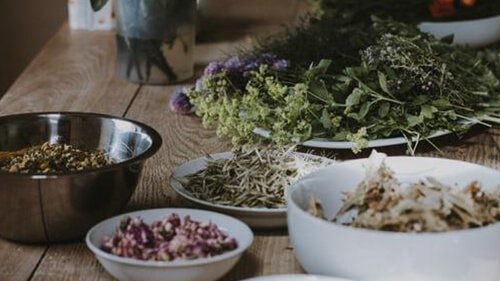Using herbal supplements to treat depression has been around for centuries. Often referred to as the sweet flag, this medicinal root is derived from the calamus plant. Not to be confused with the black flag, calamus boosts memory and stimulates the nervous system, all of which help to reduce depressive symptoms. The Chipewyan people of Western Canada have used calamus for centuries to treat a variety of conditions, including depression.
Herbalists often recommend herbs like chamomile, female strains, fennel, or hops for their potential antidepressant effects. These herbs support the nervous system, helping to calm racing thoughts, and obsessive behaviors. They can also be useful for seasonal depression. These herbs aren’t suitable for everyone, but they can be effective for mild to moderate depression. They can help the sufferer regain their equilibrium and feel more hopeful again.
The World Health Organization (WHO) estimates that 121 million people around the world suffer from depression. Whether it is the symptoms of the condition itself or the effects on your life, it can be devastating. It’s vital to treat the root cause of depression before it gets out of control. A good way to do that is to explore the root cause of depression. This may mean taking hard steps to explore its meaning, but you should also remember that depression is a symptom of other problems that need to be dealt with.
Table of Contents
St. John’s wort
You might be wondering how to deal with depression using organic herbs. Herbal supplements have gained popularity as an alternative medicine, but the FDA does not regulate them the same way it does drugs. Furthermore, manufacturers don’t always disclose how much of a substance contains a certain herb. A popular herbal remedy for depression is St. John’s wort (Hypericum perforatum), which has been used for centuries to treat mental health conditions.
While the most well-known herbs are St. John’s Wort, many others work better. For example, milk thistle is effective for treating OCD, while St. John’s wort is helpful for people who have insulin resistance. While St. John’s Wort isn’t a cure for depression, it can help manage symptoms and help you feel better. You can use it in tablet form or tincture, or as a tea
Rhodiola rosea L
Researchers studied the chemical composition of Rhodiola rosea L., as well as its traditional uses in the Chinese medicine world. They discovered that it inhibited the oxidation of monoamine – the enzyme that causes the body to produce serotonin and other neurotransmitters. In addition, they discovered that Rhodiola rosea extract reduced the toxic effects of the drug rubomycin on the small intestine of mice, which inhibited tumor growth.
Several studies have shown that rhodiola rosea, a natural herb, can help with symptoms of generalized anxiety disorder and depression. In one study, ten participants took 340 mg of rhodiola for 10 weeks and reported fewer symptoms than those who had been taking sertraline. Moreover, the herb did not have the same side effects as the drug. Some people experience dizziness and dry mouth while using the herb, but the results are promising.
SAM-e
SAM-e is a naturally occurring compound produced from the amino acid methionine. Research on the use of SAM-e for depression suggests that it can alleviate symptoms of neurocognitive disorders. It also boosts the levels of NAC, an amino acid precursor to L-cysteine. Despite the lack of evidence, however, many people who take it report improved moods.
Despite the benefits of SAM-e, it can cause side effects. Most people experience digestive upsets, although less common side effects include increased thirst, increased urination, headache, and decreased blood glucose levels. A standard dose of SAM-e for depression is four hundred milligrams a day, although higher doses are sometimes used empirically. Some physicians recommend taking lower doses for milder cases of depression.
Side Notes
First, consider the history of herbal medicine and its effects on mental health. For centuries, Chinese and Ayurvedic medicine have used the medicinal root of calamus, a plant that is not to be confused with the black flag. Calamus interacts with the GABAA receptors in the brain and improves memory, while also stimulating the nervous system and relieving depression. Calamus was used by the Chipewyan people in Western Canada.





